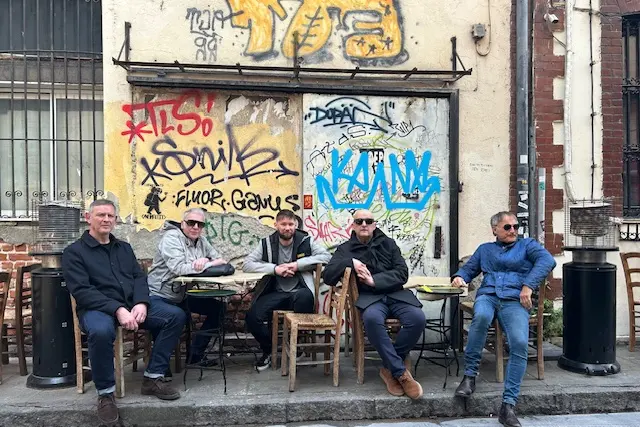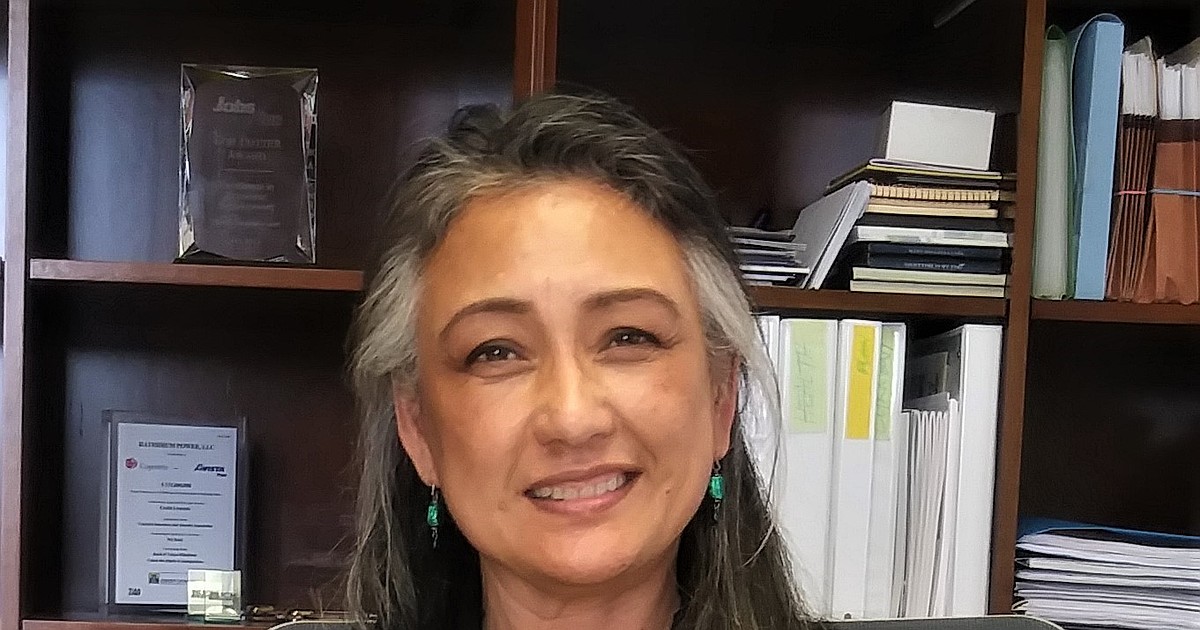Copyright Chicago Tribune

The Midwest Companies put its first roots in the ground on a 5-acre plot in 1969. More than 50 years later, the company has grown to 700 acres of nursery facilities in St. Charles and Virgil, Illinois, as well as Glenn, Michigan. The company grows and distributes plants to landscape architects and other professionals through Midwest Groundcovers. More recently, the company expanded to add Midwest Trading Horticultural Supplies, which makes and sells soil to other nurseries and horticulture operations. The two companies are under the umbrella The Midwest Companies, a family-owned business founded by Peter Orum and his wife, Irma. Today, the company is run by Peter’s daughter, Christa Orum-Keller, and her husband, Craig. The Midwest Companies is ranked 39th among small employers on the Chicago Tribune’s list of Top Workplaces, as measured by the consultancy Energage in Exton, Pennsylvania. At the nurseries, employees tend to shrubs, flowers and other plants for use in landscaping projects. Their plants have been used in parks and buildings around Chicago — including Millennium Park’s Lurie Garden — and elsewhere across the Midwest. For Orum-Keller, defining the company culture is vital to having a successful business and ensuring they find the best employees for the job. The company has 28 fundamental values that guide its work — things like “Do The Right Thing, Always,” “Be Curious,” “Lead By Example” and “Keep Things Fun.” The values are discussed and reinforced regularly. “Pretty much every single meeting we have, we end up talking about some of our fundamentals,” Orum-Keller said. “And then we continue to teach on them week after week, and it really is transformative.” This focus on culture is also a practical part of the company’s hiring strategy. Managers discuss the values with recruits as part of the hiring process, Orum-Keller said. “Being able to talk about that culture as we’re going through the hiring experience, that helps,” she said. “If people find that appealing, we find that the right people find their way and continue through that interview process.” Managers said they get feedback from employees at every level of the company. Midwest Groundcovers President and COO Paul Pirkle said he practices “management by walking around,” checking in with employees at the nursery and seeing what they need. Orum-Keller said the “open-door” style goes back to the company’s founding: Her dad’s approach was to build consensus, find compromises and move forward with decisions after hearing input from everyone. “Sometimes our decision-making process can be slower than normal, but usually when we’re making a decision and moving forward, we have more consensus than average,” she said. “So I do think that it’s just kind of built into our habits.” That approach has practical applications. At worksites for both Midwest Groundcovers and Midwest Trading Horticultural Supplies, employees can submit ideas at safety suggestion boxes. Joe Hobson, the president and CEO of Midwest Trading, set them up earlier this year and encouraged employees to use them if they see areas where safety could be improved. Hobson reviews those suggestions and makes changes if needed, and the employee who made the suggestion gets a $50 gift card. The suggestions have sparked meaningful changes, from repairing a wobbly picnic table and installing safety lines to prevent people from walking into dangerous areas. In an employee survey, several employees said they liked the opportunity for growth that the Midwest Companies provides. Managers said they are intentional about advancing employees’ careers. Beyond promotions and making sure employees know about open positions, managers have begun developing personalized career plans with employees and exploring how they want their role to grow and advance, Pirkle said. “It’s so important that we are moving through these and giving people that opportunity to say, ‘Hey, if this ever opens up, then I would really like to be able to have that opportunity,’” Pirkle said. “And so we look to place people in the right positions that fit them really well.” Horticulture is seasonal work, so certain times of year, like spring, are busier and more demanding. Orum-Keller said the company gives employees time to prepare for those busy seasons and plenty of time to take vacations and rest during the quieter summer. She said the company recently adjusted its paid time off policy to give employees more time off when they need it. “I think we’re also pretty good at celebrating when we have victories,” Orum-Keller said. “We have a lot of social events and parties, celebrations where we get to give each other a high-five and celebrate what we’re doing.” The company’s downtime in the winter is also used for professional development and learning opportunities. Pirkle often brings in industry professionals for a company-sponsored education program, and employees got the chance to tour a nursery in Oregon last year. Hobson said customers have good things to say about working with The Midwest Companies’ employees, and their passion comes across in their interactions. “They’re generally inspired,” Hobson said of his employees. “They’re satisfied, they’re happy to be working here. They feel good about themselves, they feel good about what they’re doing. They feel good about they’re a part of something that’s not just, ‘Well, I got to go to work and punch in.’” The company also makes an effort to give back to the community. Orum-Keller said this is a philosophy inherited from her parents, who believed in giving back “time, talents and treasures.” The company supports industry research and has an employee-led community outreach committee, which organizes monthly charitable events. At the end of the year, the company matches all funds raised by employees. “It is the team, it’s the people that make all the difference,” Orum-Keller said. “I feel proud of our team, but I feel extremely grateful and also humble that they’re doing what they’re doing. It’s amazing and it’s really exciting to see.” Caleb McCullough is a freelance writer.



